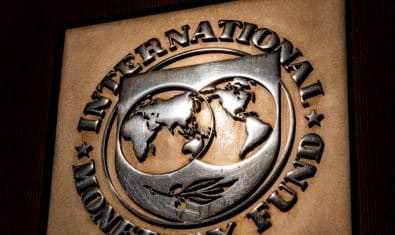Pakistan maintains a trade deficit due to high imports of energy products, including fuel, machinery equipment, and chemicals, as noted by the Pakistan Bureau of Statistics (PBS).
It mentioned in its ‘Annual Analytical Report on External Trade Statistics of Pakistan Fiscal Year 2020-21’ that the country’s trade deficits began in the fiscal year 1955 and continue to date. Pakistan had joined the World Trade Organization in 1995 but its terms of trade remained favorable, and its main import partners are the United Arab Emirates and China, according to the report.
It detailed that the exports during July–June 2020–21 totaled Rs. 4,041,927 million against Rs. 3,369,782 million during the corresponding period last year, which shows an increase of 19.95 percent. In terms of US Dollars, the exports during July–June 2020–21 amounted to $25,304 million (provisional) against $21,394 million during the previous corresponding period, indicating an increase of 18.28 percent.
The imports during July–June 2020–21 totaled Rs. 8,982,441 million (provisional) against Rs. 7,029,819 million during the same period in the last year, implying growth of 27.78 percent. In US Dollars, the imports during July–June 2020–21 totaled $56,380 million (provisional) against $44,553 million during the same period last year, showing an upscaling of 26.55 percent. The balance of the trade figures from July–June 2020–21 were (-)4,940,514 million in terms of Rupees and (-)31,076 million in US Dollars as per the PBS report.
The highest share of the growth in total imports is that of the food group. During the fiscal year 2021, the food group had a 14.81 percent share of the total imports, grew by 53.91 percent, and its import reached $8,347.8 million as compared to $5,423.9 million during the fiscal year 2020.
A surge was observed within the food group, particularly in the imports of wheat, sugar, palm oil, and dry fruits. Due to supply disruptions, 3613 MT of wheat was imported, amounting to $983.33 million. Likewise, the deficiency of production caused the sugar import bill to register $128.65 million. Milk, dry fruits, tea, spices, and pulses all showed an upward trend and increased by 17.54 percent, 128.93 percent, 8.97 percent, 29.31 percent, and 15.48 percent respectively.
The machinery group had an 18 percent share in the overall imports which went up by 15.47 percent and reached $10,147 million during the fiscal year 2021 as compared to $8,782 million in the fiscal year 2020.
The petroleum group imports bill, which had a share of 20.15 percent of the total imports, plummeted and showed negative growth of 8.26 percent during the period July–April 2020–21 as compared to the same period last year, and dropped to $8,697.8 million from $9,481.0 million due to sharp rise of the demand and international prices of petroleum.
Regarding the imports during May 2021 and June 2021, an increase of 185.84 percent was observed as compared to the same period of the last financial year. Subsequently, the imports bill for the entire fiscal year 2021 clocked $11,357.9 million as compared to $10,411.5 in the fiscal year 2020 and exhibited an increment of 9.09 percent.
The exports of textile manufacturers, which account for 60.86 percent of the total exports, had a remarkable escalation of 22.93 percent during the fiscal year 2021 as compared to a negative growth of 6.01 percent last year, and amounted to $15.399 billion in the fiscal year 2021 against $12.527 billion during the fiscal year 2020.





















